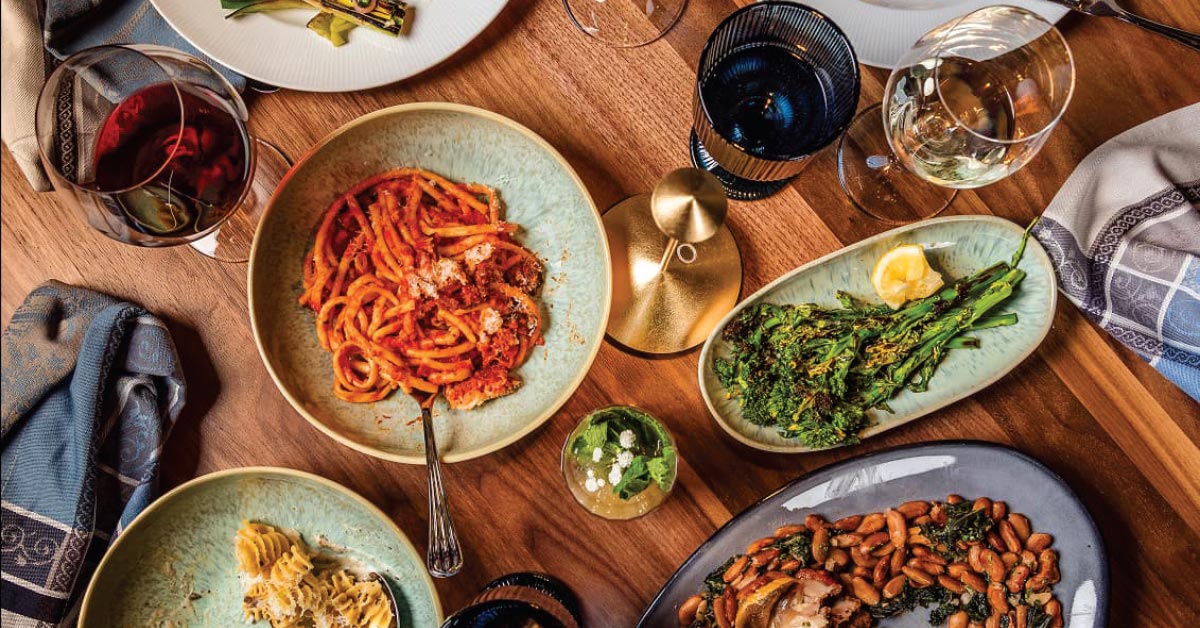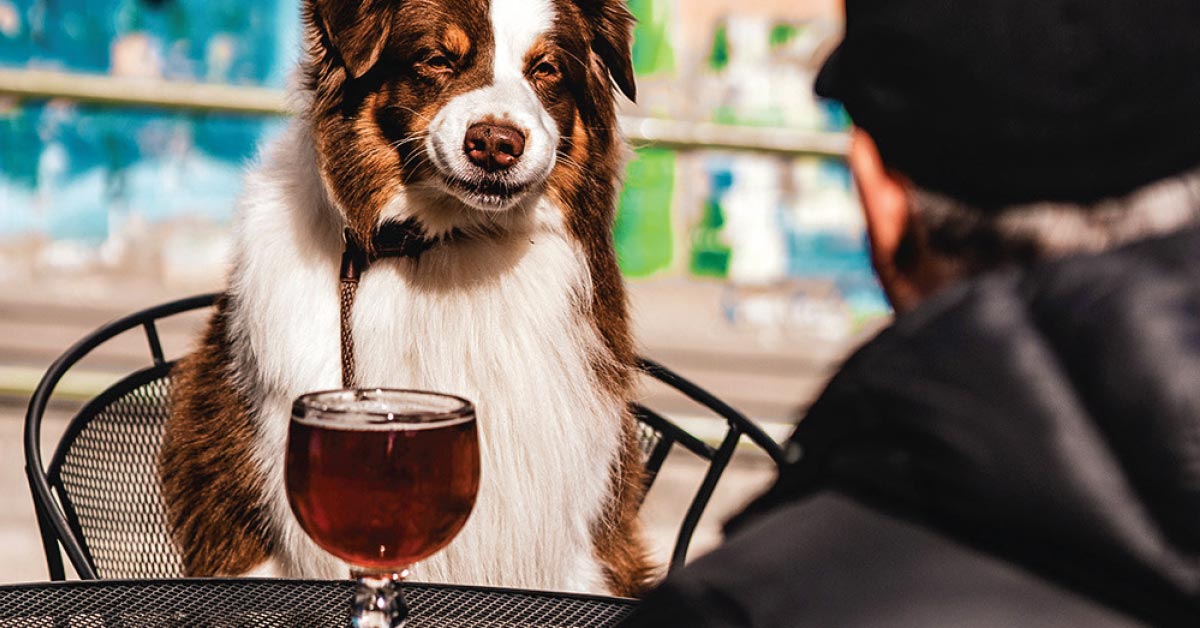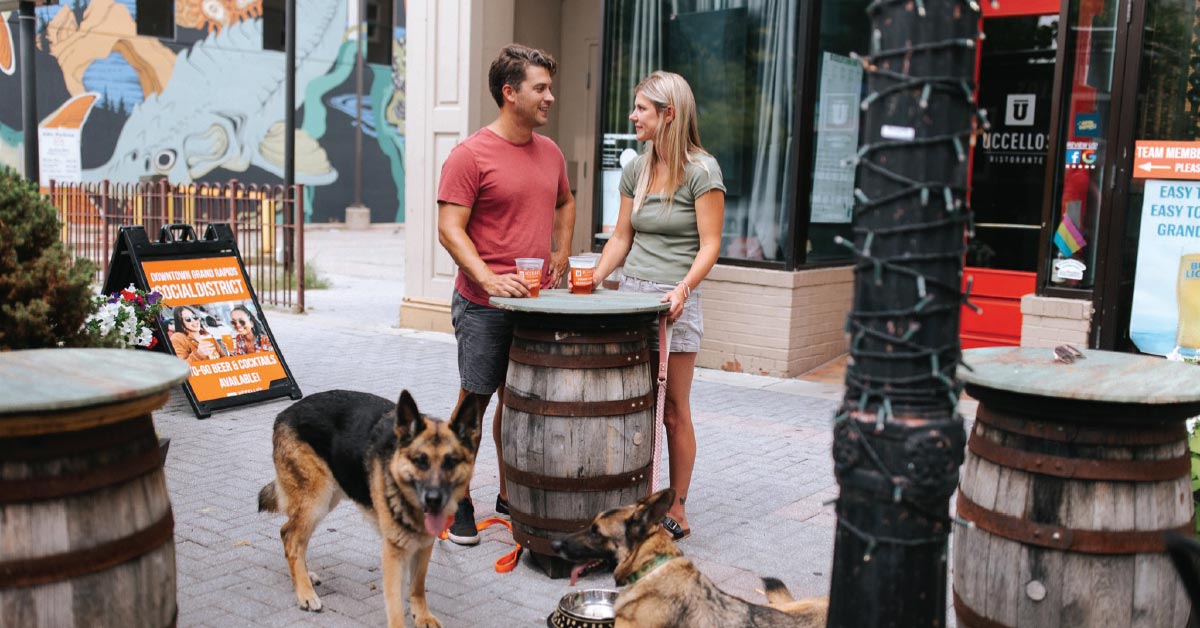In an era when people want to know more about the origin of their food, many are starting to pay closer attention to how those tasty animals were treated before they became sustenance. At the forefront of that movement is heritage meats. Grand Rapids’ very own Duba & Co. is one of two (two!) purveyors of heritage meat in the United States. This month, I rode along with owner Jeff Duba to visit Matt Burdick at Idle River Farms in Burlington, Mich. to talk about the ins-and-outs of heritage animals and the rapidly growing interest behind them.
So how does Duba & Co. fit into the heritage mix?
Duba: Really, Duba & Co. is just a farmer’s market. I only facilitate the transaction — the farmers are the ones who do all the work. So lately, we’ve gone through a sort of rebranding of the company where we can put the people who raise these animals front and center. My job is getting the word out and making heritage meats more widely available to the home consumer.
What exactly are heritage meats?
Duba: Heritage meats involve the use of not only rare breeds of livestock but also more traditional methods of raising livestock. The most stringent standards belong to heritage beef, but common among all types of livestock are rules like: No growth hormones, no routine use of antibiotics, humane slaughter, pasture-raised or permanent access to the outdoors and natural mating.
Burdick: So when we’re talking about heritage meats, Jeff and I are talking about two different things. He’s thinking about the meat — I’m thinking about the animal. I want something that doesn’t taste like it was raised on a million gallons of hog manure. Hogs like to lie in the mud and roll in the water. And because of that, and the breed of hogs we raise and their genes, the meat doesn’t taste like it was raised in confinement.
Idle River raises Red Wattle hogs, which have a mysterious story, don’t they?
Duba: Yes. They’re believed to have originated on the island of New Caledonia, in the Pacific, and somehow wound up in New Orleans in the 18th and 19th century where the French appreciated them. Then they just went missing. Nobody knows where they went, but they were thought to have been extinct. Much later on, they were rediscovered in East Texas and were slowly brought back into circulation.
Burdick: They got popular back in the ’70s and ’80s and then died down a little. Lots of butchers I’ve taken my hogs to will tell me they used to see a lot of Red Wattles back then.
What inspired you to learn to raise heritage animals?
Burdick: My family is Christian, so we talk about stewardship. My faith tells me we have dominion over these animals but we interpret that to mean stewardship. It’s not that we’re in control of them, it’s that we have a responsibility to take care of them humanely and that they have a good life. Now, I believe that’s true of all livestock, but the other aspect is that we raise heritage animals so that their breed can continue. Let’s face it, the only reason this breed is around today is because they taste good. They would be extinct otherwise — their demand on the market is what keeps them around.
Duba: For me, I guess it’s seeing others realize that there’s a better way to do this. Lots of people give up eating meat for philosophical or environmental reasons. We’ve had vegans who convert back to eating meat because they try the product and they can see who’s behind it. They can meet Matt and Crystal and they can support the sustainable process behind these animals. The flavor is a bonus, really.
Let’s get down to brass tacks. I’ve heard pigs are funny animals. They’ve got their own personalities and quirks, right?
Burdick: They’re very funny animals and smart. They’re some of the smartest farm animals around. Though, they’re always pushing on the fence, looking for holes and digging their way out. Not too long ago, my wife said, ‘I think that the hogs are out because I hear grunting outside the window.’ I opened up the door and there was a hog standing on the porch!
Duba & Co.: dubaandcompany.com, (719) 445-9780
Idle River Farms: idleriverfarms.com, (269) 719-9355





